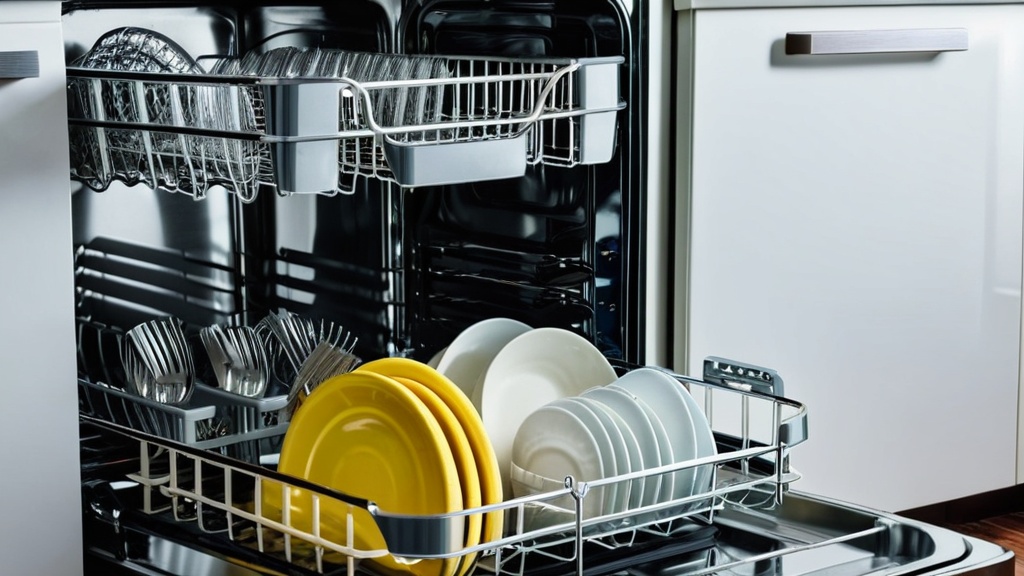Dishwasher leaks can be a frustrating and potentially damaging problem for homeowners. When water starts leaking from your dishwasher, it can cause damage to your kitchen floor, cabinets, and even the appliances themselves. It is important to address dishwasher leaks promptly to avoid further damage and costly repairs.
Table of Contents
- Key Takeaways
- Common Causes of Dishwasher Leaks
- Signs of Dishwasher Leaks
- Tools and Materials Needed for Repair
- How to Identify the Source of the Leak
- Steps to Fix a Dishwasher Leak
- Prevention Tips to Avoid Future Leaks
- Professional Help for Severe Leaks
- Maintenance Tips to Keep Your Dishwasher Leak-Free
- Conclusion and Final Thoughts on Dishwasher Leaks
- What are the common causes of leaks in dishwashers and how can they be fixed?
- FAQs
- What are the common causes of leaks in a dishwasher?
- How can I identify the source of the leak in my dishwasher?
- What are some solutions for fixing a leak in a dishwasher?
- Can I fix a leak in my dishwasher myself?
- How can I prevent leaks in my dishwasher?
A dishwasher leak can occur for a variety of reasons, including worn gaskets, damaged hoses, and clogged drains. These issues can lead to water seeping out of the dishwasher and onto the floor, causing damage to your home. Additionally, if left untreated, a dishwasher leak can lead to mold and mildew growth, which can be harmful to your health.
Key Takeaways
- Dishwasher leaks can cause serious damage to your home if left unchecked.
- Common causes of dishwasher leaks include faulty gaskets, damaged hoses, and clogged drains.
- Signs of dishwasher leaks include water pooling around the dishwasher, a musty smell, and water damage to nearby cabinets or floors.
- To repair a dishwasher leak, you will need tools such as pliers, a screwdriver, and a wrench, as well as materials like replacement gaskets and hoses.
- To identify the source of the leak, you should inspect the dishwasher’s hoses, gaskets, and seals, as well as the drain and water supply lines.
Common Causes of Dishwasher Leaks
One of the most common causes of dishwasher leaks is worn gaskets. The gasket is a rubber seal that lines the door of the dishwasher and prevents water from leaking out. Over time, the gasket can become worn or damaged, allowing water to seep through. Another common cause of dishwasher leaks is damaged hoses. The hoses that connect the dishwasher to the water supply and drain can become cracked or loose, causing water to leak out. Finally, clogged drains can also lead to dishwasher leaks. If the drain is clogged with food particles or debris, water can back up and overflow from the dishwasher.
Signs of Dishwasher Leaks
There are several signs that your dishwasher may be leaking. One of the most obvious signs is water on the floor around the dishwasher. If you notice puddles of water or dampness on the floor after running your dishwasher, it is likely that there is a leak. Another sign of a dishwasher leak is a musty smell coming from the appliance. This can indicate that water is pooling somewhere inside the dishwasher and not draining properly. Additionally, if you notice that your dishes are not getting clean or are coming out with a film on them, it could be a sign of a leak. Water leaking out of the dishwasher can prevent it from properly cleaning your dishes.
Tools and Materials Needed for Repair
Before attempting to repair a dishwasher leak, it is important to gather the necessary tools and materials. Some of the tools you may need include a screwdriver, pliers, and a wrench. You may also need replacement gaskets, hoses, and drain cleaners. It is important to have the right tools and materials on hand before starting the repair to ensure that you can complete the job properly.
How to Identify the Source of the Leak
To identify the source of a dishwasher leak, start by checking the gaskets. Inspect the rubber seal around the door for any signs of wear or damage. If you notice any cracks or gaps in the gasket, it will need to be replaced. Next, check the hoses for any signs of damage or looseness. Tighten any loose connections and replace any damaged hoses. Finally, check the drain for any clogs or blockages. Use a drain cleaner or snake to clear any debris from the drain.
To pinpoint the source of the leak, use visual cues and common sense. Look for water pooling or dripping from specific areas of the dishwasher. Follow the water trail to find where it is coming from. Additionally, consider when and how the leak occurs. Does it happen only when the dishwasher is running? Does it happen during certain cycles? This information can help you narrow down the source of the leak.
Steps to Fix a Dishwasher Leak

Once you have identified the source of the leak, you can begin repairing it. Start by replacing any worn or damaged gaskets. Remove the old gasket and clean any residue from the area. Install the new gasket by pressing it firmly into place along the door frame. Next, replace any damaged hoses by disconnecting them from the dishwasher and water supply. Use pliers to loosen any tight connections and remove the old hose. Install the new hose by connecting it to the dishwasher and water supply, making sure to tighten all connections. Finally, if the drain is clogged, use a drain cleaner or snake to clear any debris.
Prevention Tips to Avoid Future Leaks
To avoid future dishwasher leaks, there are several preventive measures you can take. Regularly clean your dishwasher to remove any food particles or debris that can clog the drain. Run a cycle with a dishwasher cleaner once a month to keep the appliance clean and free of buildup. Additionally, check for signs of wear and tear on the gaskets and hoses. Replace any damaged parts before they cause a leak. Finally, avoid overloading your dishwasher, as this can put strain on the gaskets and hoses and increase the risk of a leak.
Professional Help for Severe Leaks
In some cases, it may be necessary to seek professional help for severe dishwasher leaks. If the leak is caused by major damage to the appliance or if you are unable to identify or fix the source of the leak, it is best to call a professional repair service. Additionally, if you notice any signs of electrical issues or if the leak is causing significant damage to your home, it is important to seek professional help immediately.
Maintenance Tips to Keep Your Dishwasher Leak-Free
To keep your dishwasher leak-free, there are several maintenance tips you can follow. Regularly clean your dishwasher by removing any food particles or debris from the filter and spray arms. Wipe down the interior of the dishwasher with a damp cloth to remove any residue. Additionally, check for signs of wear and tear on the gaskets and hoses. Replace any damaged parts promptly to prevent leaks. Finally, avoid using excessive amounts of detergent or loading your dishwasher improperly, as this can put strain on the appliance and increase the risk of a leak.
Conclusion and Final Thoughts on Dishwasher Leaks
In conclusion, dishwasher leaks can be a frustrating and potentially damaging problem for homeowners. It is important to address leaks promptly to avoid further damage to your home and appliances. By following the tips outlined in this article, you can identify and repair dishwasher leaks and prevent future leaks from occurring. Regular maintenance and proper use of your dishwasher can help you avoid costly repairs and damage to your home.
If you’re dealing with leaks in your dishwasher, you’ll want to check out this helpful article on 911 Appliance’s blog. They provide valuable insights and solutions for identifying and tackling leaks in your dishwasher. From common causes to step-by-step troubleshooting, this article covers it all. Don’t let leaks ruin your kitchen! Visit their blog and get the expert advice you need to keep your dishwasher running smoothly. Read more

What are the common causes of leaks in dishwashers and how can they be fixed?
Door leaking solutions can help address common causes of leaks in dishwashers. Loose door hinges or damaged gaskets can lead to leaks. Tightening the hinges or replacing the gasket can resolve this issue. Additionally, ensuring proper loading techniques and avoiding overfilling can prevent leaks. Regular maintenance and cleaning the door seal can further minimize the risk of leaks in dishwashers.
FAQs
What are the common causes of leaks in a dishwasher?
Common causes of leaks in a dishwasher include a damaged door gasket, a worn-out pump seal, a clogged drain hose, a cracked tub, or a faulty water inlet valve.
How can I identify the source of the leak in my dishwasher?
To identify the source of the leak in your dishwasher, you can inspect the door gasket, pump seal, drain hose, tub, and water inlet valve for any signs of damage or wear. You can also run a cycle with an empty dishwasher and observe where the water is leaking from.
What are some solutions for fixing a leak in a dishwasher?
Solutions for fixing a leak in a dishwasher depend on the source of the leak. For example, if the door gasket is damaged, it may need to be replaced. If the pump seal is worn out, it may need to be repaired or replaced. If the drain hose is clogged, it may need to be cleaned. If the tub is cracked, it may need to be replaced. If the water inlet valve is faulty, it may need to be repaired or replaced.
Can I fix a leak in my dishwasher myself?
It is possible to fix a leak in your dishwasher yourself, depending on the source of the leak and your level of expertise. However, it is recommended to seek professional help if you are unsure about how to fix the leak or if the repair requires specialized tools or knowledge.
How can I prevent leaks in my dishwasher?
To prevent leaks in your dishwasher, you can regularly inspect and maintain the door gasket, pump seal, drain hose, tub, and water inlet valve. You can also avoid overloading the dishwasher, using too much detergent, or using the wrong type of detergent. Additionally, you can run hot water in the sink before starting the dishwasher to ensure that the water entering the dishwasher is hot enough.



